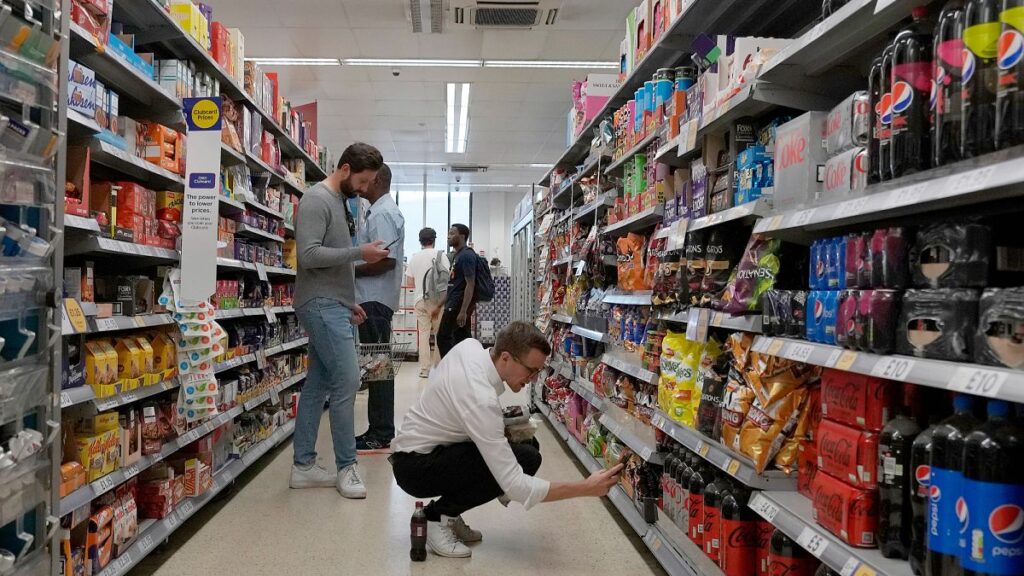Children in England are experiencing “almost Dickensian poverty”, with cases of overcrowded, rat-infested housing and mouldy food parcels, the Children’s Commissioner has warned in a new report that calls for the two-child limit on benefits to be scrapped.
Dame Rachel de Souza, the Children’s Commissioner for England, said that despite living in “one of the richest societies in the world,” poverty has become distressingly normalised, noting that it was “deeply concerning how often children seemed to accept these inadequate situations as normal.”
By the official child poverty measure, there were a record 4.5 million children (31%) in poverty in the UK in the year to April 2024, meaning that they live in families that earn less than 60% of median income. This number includes 1 million children living in destitution, whose households can’t afford the absolute basics like food or heating.
Children are more likely to live in poverty than adults. De Souza’s office conducted the qualitative research, speaking to almost 130 children in England this year about their experiences of living in poverty, with the aim of informing the UK government’s upcoming Child Poverty Strategy.
“Children shared harrowing accounts of hardship, with some in almost Dickensian levels of poverty,” the Children’s Commissioner said, noting that young people spoke about lacking things “that most people would consider basic,” such as “a safe home that isn’t mouldy or full or rats, with a bed big enough to stretch out in, ‘luxury’ food like bacon, a place to do homework, heating, privacy in the bathroom and being able to wash, having their friends over, and not having to travel hours to school.”
Forced to choose between essentials
She said that children appeared acutely aware of the their families’ day-to-day costs, noting that “issues that were traditionally seen as ‘adult’ concerns are now also felt by the youngest in society.”
Children said that they often had to choose between essentials, such as food and heating, with one 16-year-old girl saying: “I remember when my sister was just born … you have to keep the house warm. But you can’t keep the house warm…because there was six of us in the house at the time…you’re trying to feed everyone, keep everyone warm and then pay for every expense around the house, so it’s quite a lot.”
Young people also spoke about the health impacts of their families’ inability to afford healthy food, feeling lured into gangs, and how living in temporary accommodation without a kitchen meant their families could not cook.
Children described the impact of their families’ inability to afford basic furniture, with one 10-year-old girl saying her home did not have a table: “I would say some people don’t have a table…they can’t afford it, they might have to use the floor and sometimes the floor can be cold because of the heating.”
Scrapping the two-child limit
The report recommends that the two-child limit be ended, a rule introduced by the previous Conservative government in April 2017 which restricts child tax credit and universal credit to the first two children in most households.
The Child Poverty Action Group estimates that 109 children are pulled into poverty each day by the policy, which the Labour government are under mounting pressure to scrap, with the group saying that ending the policy is “by far” the most cost-effective way to reduce child poverty.
The report also called for the government to commit to a “triple-lock” for all child-related benefits to guarantee they keep pace with the cost of living, introduce free bus travel for all school-age children, and ensure that no child or family is housed in temporary accommodation for over six weeks.
Rachel Walters, End Child Poverty Coalition Manager described the Children’s Commissioner’s report’s findings as “deeply troubling” but “sadly no longer shocking.”
She told Euronews in a statement: “Whilst it is deeply troubling to hear about the experiences of young people growing up in poverty in the Children’s Commissioner Report issued today, it is also sadly no longer shocking. We hear stories like this every day from our members – working with the poorest families across the country, and directly from young people we support.
“We know that scrapping the two-child limit is the quickest and most cost-effective way to lift children out of poverty – and we urge the government to take this important first step when developing their plan to reduce child poverty. For families on the breadline, this change can’t come soon enough.”
Child poverty across the EU
In the EU, 19.5 million children in the EU were at risk of poverty or social exclusion in 2024, the latest Eurostat figures show, affecting 24.2% of children across the bloc.
The EU’s risk of poverty is defined differently from the UK’s measure, with Eurostat stating that it includes people who are in at least one of these three situations: people on below 60% of the national median income; people facing severe material and social deprivation; and, under-65s living in a household where adults are employed for less than 20% of their potential working hours.
At the country level, Bulgaria reported the highest rates in 2024, at 35.1%, followed by Spain at 34.6% and Romania at 33.8%. The lowest figures were recorded in Slovenia (11.8%), Cyprus (14.8%) and the Czech Republic (15.4%).
Read the full article here

